
02_EU_institutions
.pdf
Three ‘councils’: which is which?
It’s easy to get confused about which European body is which – especially when very different bodies have very similar names, such as these three ‘councils’.
The European Council
ÆThis means the Heads of State or Government of all the EU countries, plus the President of the European Commission. It depends on the political system of each country whether their participant is the president and/or the prime minister. The European Council meets, in principle, four times a year to agree overall EU policy and to review progress. It is the highest level policymaking body in the European Union, which is why its meetings are often called ‘summits’.
The Council of the European Union
ÆFormerly known as the Council of Ministers, this institution consists of government ministers from all the EU countries. The Council meets regularly to take detailed decisions and to pass EU laws. A fuller description of its work is given later in this booklet.
The Council of Europe
ÆThis is not an EU institution at all. It is an intergovernmental organisation which aims (amongst other things) to protect human rights, to promote Europe’s cultural diversity and to combat social problems such as racial prejudice and intolerance. It was set up in 1949 and one of its early achievements was to draw up the European convention on Human Rights. To enable citizens to exercise their rights under that convention, it set up the European Court of Human Rights. The Council of Europe now has 47 member countries, including all 27 European Union countries, and its headquarters is the Palais de l’Europe in Strasbourg (France).
2. Consultation
The consultation procedure is used in areas such as agriculture, taxation and competition. Based on a proposal from the Commission, the Council consults Parliament, the European Economic and Social Committee and the Committee of the Regions.
Under the consultation procedure, Parliament may:
•approve the Commission proposal,
•reject it, or
•ask for amendments.
If Parliament asks for amendments, the Commission will consider all the changes Parliament suggests. If it accepts any of these suggestions it will send the Council an amended proposal.
The decision ultimately rests with the Council, which either adopts the amended proposal or amends it further. In this procedure, as in all others, if the Council amends a Commission proposal it must do so unanimously.
HOW EUTHE DECISIONSTAKES
9
HOW THE EUROPEAN UNION WORKS
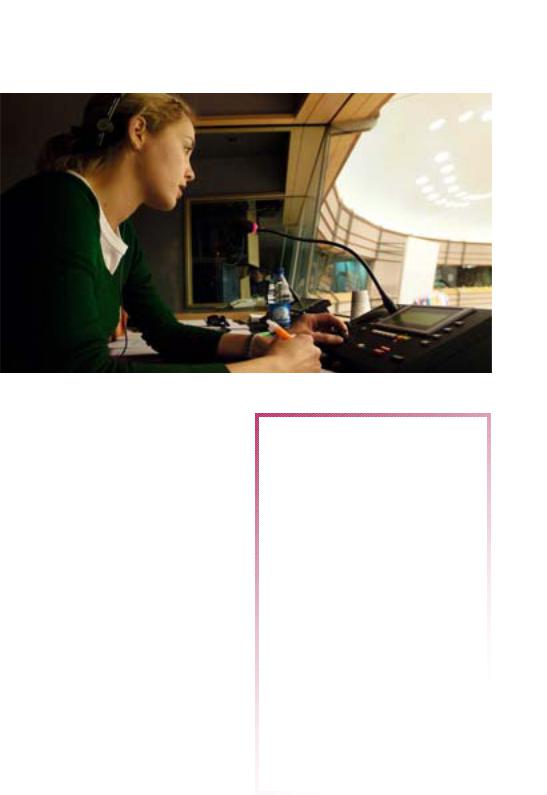
HOW THE EU TAKES DECISIONS
10
HOW THE EUROPEAN UNION WORKS
The EU’s interpreters play a vital role in its work.
3. Assent
The assent procedure means that the Council has to obtain the European Parliament’s assent before certain very important decisions are taken. The procedure is the same as in the case of consultation, except that Parliament cannot amend a proposal: it must either accept or reject it. Acceptance (‘assent’) requires an absolute majority of the votes cast.
The assent procedure is mostly used for agreements with other countries, including the agreements allowing new countries to join the EU.
© EC
Who works for the EU institutions?
The civil servants who work for the EU institutions come from all EU member countries. They cover a wide range of activities and skills, from policymakers and managers to economists, engineers, lawyers, linguists, secretaries and technical support staff. They must be able and willing to work in a multicultural and multilingual environment, usually at quite a distance from their home country.
To become an EU civil servant you have to pass a tough competitive examination. These exams are centrally organised by the European Personnel Selection Office (EPSO).
For further information, go to europa.eu/epso

|
|
|
|
The European |
|
|
|
|
|
Parliament: |
|
|
|
|
|
||
|
|
|
|
voice of the people |
|
|
|
|
|
||
|
|
|
|
||
|
|
|
|
||
|
KEY FACTS |
|
|
||
|
ROLE // |
Directly elected legislative arm of the EU |
|||
|
NEXT ELECTION // |
June 2009 |
|||
|
MEETINGS // |
Monthly plenary sessions in Strasbourg, additional plenary |
|||
|
|
|
|
sessions and committee meetings in Brussels, secretariat |
|
|
|
|
|
in Luxembourg |
|
|
ADDRESS // |
Plateau du Kirchberg, BP 1601, L-2929 Luxembourg |
|||
|
TEL. // |
(352) 4300-1 |
|||
|
INTERNET // |
europarl.europa.eu |
|||
The European Parliament (EP) is elected by the citizens of the European Union to represent their interests. Its origins go back to the 1950s and the founding Treaties. Since 1979 its members have been directly elected by the citizens of the EU.
Elections are held every five years, and every EU citizen is entitled to vote, and to stand as a candidate, wherever they live in the EU. Parliament thus expresses the democratic will of the Union’s nearly 500 million citizens and it represents their interests in discussions with the other EU institutions.
The latest elections were in June 2004. Parliament has 785 members from all 27 EU countries.
Members of the European Parliament (MEPs) do not sit in national blocks, but in EU-wide political groups. Between them, they represent all views on political issues and European integration, from the strongly pro-federalist to the openly Eurosceptic.
Hans-Gert Pöttering was elected President of the EP in 2007 and is to hold that post until the 2009 elections.
Where is Parliament based?
The European Parliament has three places of work: Brussels (Belgium), Luxembourg and Strasbourg (France).
Luxembourg is home to the administrative offices (the ‘General Secretariat’). Meetings of the whole Parliament, known as ‘plenary sessions’, take place in Strasbourg and sometimes in Brussels. Committee meetings are also held in Brussels.
THE EUROPEAN PARLIAMENT: VOICE OF THE PEOPLE
11
HOW THE EUROPEAN UNION WORKS
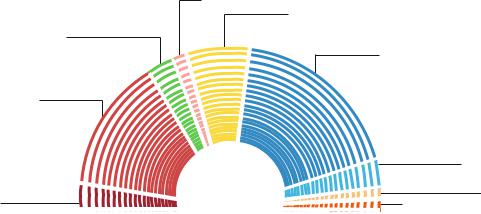
THE EUROPEAN PARLIAMENT: VOICE OF THE PEOPLE
12
HOW THE EUROPEAN UNION WORKS
Number of seats per political group, as at 1 September 2007
Independence/ Democracy (IND/DEM) 24
Greens/European Free
Alliance (Greens/EFA) 42
Socialist Group (PES) 216
Alliance of Liberals and Democrats for Europe (ALDE) 104
European People's Party
(Christian Democrats)
and European Democrats
(EPP-ED) 278
|
Union for Europe of |
|
the Nations (UEN) 44 |
European United |
Identity, Tradition and |
LeftNordic Green |
Sovereignty Group (ITS) 23 |
Left (GUE/NGL) 41 |
|
Total: 785 |
Non-attached |
|
members (NI) 13 |
Number of seats per country
Austria |
18 |
Latvia |
9 |
Belgium |
24 |
Lithuania |
13 |
Bulgaria |
18 |
Luxembourg |
6 |
Cyprus |
6 |
Malta |
5 |
Czech Republic |
24 |
Netherlands |
27 |
Denmark |
14 |
Poland |
54 |
Estonia |
6 |
Portugal |
24 |
Finland |
14 |
Romania |
35 |
France |
78 |
Slovakia |
14 |
Germany |
99 |
Slovenia |
7 |
Greece |
24 |
Spain |
54 |
Hungary |
24 |
Sweden |
19 |
Ireland |
13 |
United Kingdom |
78 |
Italy |
78 |
Total |
785 |
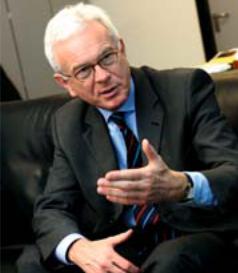
© EC
Hans-Gert Pöttering,
President of the European Parliament.
What does Parliament do?
Parliament has three main roles.
1.Passing European laws — jointly with the Council in many policy areas. The fact that the EP is directly elected by the citizens of the EU helps guarantee the democratic legitimacy of European law.
2.Parliament exercises democratic supervision over the other EU institutions, and in particular the Commission. It has the power to approve or reject the nomination of commissioners, and it has the right to require the Commission as a whole to step down.
3.The power of the purse. Parliament shares with the Council authority over the EU budget and can therefore influence EU spending. It adopts or rejects the budget in its entirety.
These three roles are described in greater detail below.
1. Passing European laws
The most common procedure for adopting (i.e. passing) EU legislation is ‘codecision’ (see above: ‘How the EU takes decisions’). This procedure places the European Parliament and the Council on an equal footing, and it applies to legislation in a wide range of fields.
In some fields (for example agriculture, economic policy, visas and immigration), the Council alone legislates, but it has to consult Parliament. In addition, Parliament’s assent is required for certain important decisions, such as allowing new countries to join the EU.
Parliament also provides impetus for new legislation by examining the Commission’s annual work programme, considering what new laws would be appropriate and asking the Commission to put forward proposals.
2. Democratic supervision
Parliament exercises democratic supervision over the other EU institutions in several ways.
When a new Commission takes office, its members are nominated by the governments of the EU countries, but they cannot be appointed without Parliament’s approval. Parliament interviews each of them individually, including the prospective Commission President, and then votes on whether to approve the Commission as a whole.
Throughout its term of office, the Commission remains politically accountable to Parliament, which can pass a ‘motion of censure’ requiring the Commission’s mass resignation.
More generally, Parliament exercises control by regularly examining reports sent to it by the Commission (the annual general report, reports on the implementation of the budget, etc.). Moreover, MEPs regularly ask the Commission questions which the commissioners are legally required to answer.
THE EUROPEAN PARLIAMENT: VOICE OF THE PEOPLE
13
HOW THE EUROPEAN UNION WORKS
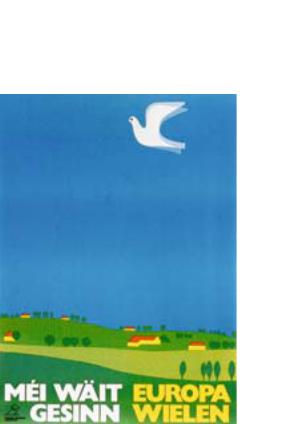
THE EUROPEAN PARLIAMENT: VOICE OF THE PEOPLE
14
HOW THE EUROPEAN UNION WORKS
Parliament also monitors the work of the Council: MEPs regularly ask the Council questions, and the President of the Council attends the EP’s plenary sessions and takes part in important debates.
Parliament can exercise further democratic control by examining petitions from citizens and setting up committees of inquiry.
Finally, Parliament provides input to every EU summit (the European Council meetings). At the opening of each summit, the President of Parliament is invited to express Parliament’s views and concerns about topical issues and the items on the European Council’s agenda.
3. The power of the purse
The EU’s annual budget is decided jointly by Parliament and the Council. Parliament debates it in two successive readings, and the budget does not come into force until it has been signed by the President of Parliament.
Parliament’s Committee on Budgetary Control monitors how the budget is spent. In addition, the Parliament each year decides whether to approve the Commission’s handling of the budget. This approval process is technically known as ‘granting a discharge’.
How is the Parliament’s work organised?
Parliament’s work is divided into two main stages.
ÆPreparing for the plenary session.
MEPs debate the Commission’s proposals in committees that specialise in particular areas of EU activity and on the basis of a report prepared by one of the committee members, the so-called ‘rapporteur’. The report gives the background and the pros and cons of the proposal. The issues for debate are also discussed by the political groups.
© European Communities |
European NAvigator, www.ena.lu |
A poster calling on Luxembourgers to vote in the first direct elections to the European Parliament in 1979.
ÆThe plenary session. Each year, 12 fourday plenary sessions are held in Strasbourg and six two-day sessions are held in Brussels. At these sessions, Parliament examines proposed legislation and votes on amendments before deciding on the text as a whole.
Other agenda items may include Commission ‘communications’ setting out its intentions in a particular sphere, or questions to the Commission or Council about what is going on in the EU or the wider world.
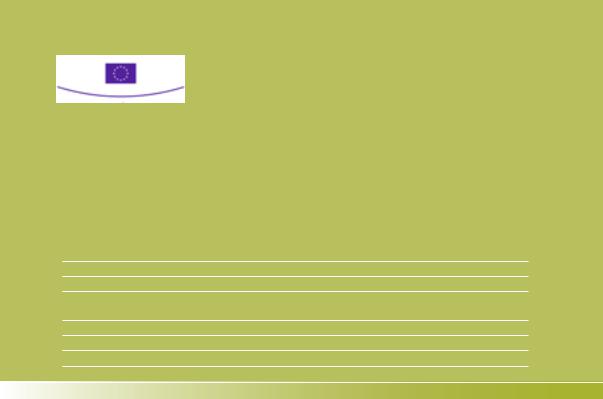
|
The Council of the |
|
|
European Union: |
|
|
voice of the |
|
|
member states |
|
|
|
|
KEY FACTS |
|
|
ROLE // |
Legislative (in some fields executive) arm of the EU; represents |
|
|
the member states. |
|
MEMBERS // |
One minister from each EU country |
|
PRESIDENCY // |
Rotates every six months |
|
MEETINGS // |
In Brussels (Belgium), except in April, June and October |
|
|
(Luxembourg). |
|
ADDRESS // |
Rue de la Loi/Wetstraat 175, B-1048 Brussels |
|
TEL. // |
(32-2) 285 61 11 |
|
INTERNET // |
consilium.europa.eu |
|
The Council is the EU’s main decision-making body. Like the European Parliament, the Council was set up by the founding Treaties in the 1950s. It represents the member states, and its meetings are attended by one minister from each of the EU’s national governments.
Which ministers attend which meeting depends on what subjects are on the agenda. If, for example, the Council is to discuss environmental issues, the meeting will be attended by the environment minister from each EU country and it will be known as the ‘Environment Council’.
The EU’s relations with the rest of the world are dealt with by the ‘General Affairs and External Relations Council’. But this Council configuration also has wider responsibility for general policy issues, so its meetings are attended by whichever minister or state secretary each government chooses.
Altogether there are nine different Council configurations:
ÆGeneral Affairs and External Relations,
ÆEconomic and Financial Affairs (Ecofin),
ÆJustice and Home Affairs,
ÆEmployment, Social Policy, Health and Consumer Affairs,
ÆCompetitiveness,
ÆTransport, Telecommunications and Energy,
ÆAgriculture and Fisheries,
ÆEnvironment,
ÆEducation, Youth and Culture.
Each minister in the Council is empowered to commit his or her government. In other words, the minister’s signature is the signature of the whole government. Moreover, each minister in the Council is answerable to his or her national parliament and to the
THE COUNCIL OF THE EUROPEAN UNION: VOICE OF THE MEMBER STATES
15
HOW THE EUROPEAN UNION WORKS
THE COUNCIL OF THE EUROPEAN UNION: VOICE OF THE MEMBER STATES
16
HOW THE EUROPEAN UNION WORKS
citizens that parliament represents. Together with the European Parliament’s involvement in decision-making, this ensures the democratic legitimacy of the Council’s decisions.
Up to four times a year the presidents and/or prime ministers of the EU countries, together with the President of the European Commission, meet as the European Council. These ‘summit’ meetings set overall EU policy and resolve issues that could not be settled at a lower level (i.e. by the ministers at normal Council meetings). Given the importance of European Council discussions, they often go on late into the night and attract a lot of media attention.
What does the Council do?
The Council has six key responsibilities:
1.to pass EU laws – jointly with the European Parliament in many policy areas.
2.to coordinate the broad economic and social policies of the member states.
3.to conclude international agreements between the EU and other countries or international organisations.
4.to approve the EU’s budget, jointly with the European Parliament.
5.to define and implement the EU’s common foreign and security policy (CFSP) based on guidelines set by the European Council.
6.to coordinate cooperation between the national courts and police forces in criminal matters.
Most of these responsibilities relate to the Community domain — i.e. areas of action where the member states have decided to pool their sovereignty and delegate decision-making powers to the EU institutions. This domain is the ‘first pillar’ of the European Union.
However, the last two responsibilities relate largely to areas in which the EU countries have not delegated their powers but are simply working together. This is called intergovernmental cooperation and it covers the second and third pillars of the European Union.
The Council’s work is described in greater detail below.
1. Legislation
The bulk of the Council’s work is in passing legislation in areas where the EU has pooled its sovereignty. The most common procedure for this is ‘codecision’, where EU legislation is adopted jointly by the Council and Parliament on the basis of a proposal from the Commission. In some areas, the Council has the final word but only on the basis of a Commission proposal and only after having taken into account the views of the Commission and the Parliament (see above: ‘How the EU takes decisions’).
2.Coordinating the policies of member states
The EU countries have decided that they want an overall economic policy based on close coordination between their national economic policies. This coordination is carried out by the economics and finance ministers, who collectively form the Economic and Financial Affairs (Ecofin) Council.
They also want to create more jobs and to improve their education, health and social protection systems. Although each EU country is responsible for its own policy in these areas, they can agree on common goals and learn from each other’s experience of what works best. This process is called the ‘open method of coordination’, and it takes place within the Council.
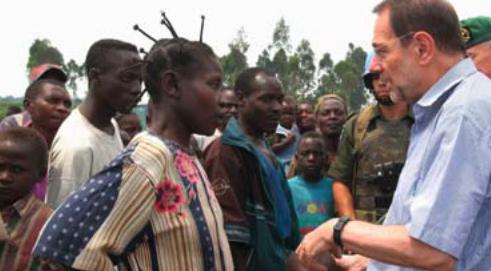
© EC
Javier Solana, the EU’s foreign policy chief, learns first hand about refugee realities.
3.Concluding international agreements
Each year, the Council ‘concludes’ (i.e. officially signs) a number of agreements between the European Union and non-EU countries, as well as with international organisations. These agreements may cover broad areas such as trade, cooperation and development or they may deal with specific subjects such as textiles, fisheries, science and technology, transport, etc.
In addition, the Council may conclude conventions between the EU member states in fields such as taxation, company law or consular protection. Conventions can also deal with cooperation on issues of freedom, security and justice (see below).
4. Approving the EU budget
The EU’s annual budget is decided jointly by the Council and the European Parliament.
5. Common foreign and security policy
The EU countries are working to develop a common foreign and security policy (CFSP). But foreign policy, security and defence are matters over which the individual national governments retain independent control. However, the EU countries have recognised the advantages of working together on these issues, and the Council is the main forum in which this ‘intergovernmental cooperation’ takes place.
This cooperation not only covers defence issues but crisis management tasks, such as humanitarian and rescue operations, peacekeeping and peacemaking in trouble spots. The EU countries try to mobilise and coordinate military and police forces, so that they can be used in coordination with diplomatic and economic action. Through these mechanisms, the EU has helped to maintain peace, build democracy and spur economic progress in places as far apart as Indonesia, the Democratic Republic of the Congo and the countries of south-eastern Europe.
THE COUNCIL OF THE EUROPEAN UNION: VOICE OF THE MEMBER STATES
17
HOW THE EUROPEAN UNION WORKS
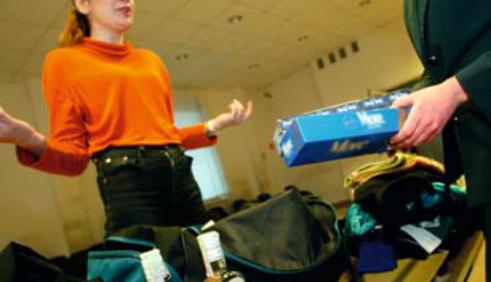
THE COUNCIL OF THE EUROPEAN UNION: VOICE OF THE MEMBER STATES
18
HOW THE EUROPEAN UNION WORKS
6. Freedom, security and justice
EU citizens are free to live and work in whichever EU country they choose, so they should have equal access to civil justice everywhere in the European Union. National courts therefore need to work together to ensure, for example, that a court judgment delivered in one EU country in a divorce or child custody case is recognised in all other EU countries.
Freedom of movement within the EU is of great benefit to law-abiding citizens, but it is also exploited by international criminals and terrorists. To tackle cross-border crime requires cross-border cooperation between the national courts, police forces, customs officers and immigration services of all EU countries.
They have to ensure, for example:
•that the EU’s external borders are effectively policed;
•that customs officers and police exchange information on the movements of suspected drugs traffickers or people smugglers;
•that asylum seekers are assessed and treated in the same way throughout the EU, so as to prevent ‘asylum shopping’.
Issues such as these are dealt with by the Justice and Home Affairs Council — i.e. the ministers for justice and of the interior. The aim is to create a single ‘area of freedom, security and justice’ within the EU’s borders.
How is the Council’s work organised?
The Council presidency
The presidency of the Council rotates every six months. In other words, each EU country in turn takes charge of the Council agenda and chairs all the meetings for a six-month period, promoting legislative and political decisions and brokering compromises between the member states.
© Reuters
Free movement of people and goods within the EU have made customs checks like these a thing of the past when travelling in Europe.
